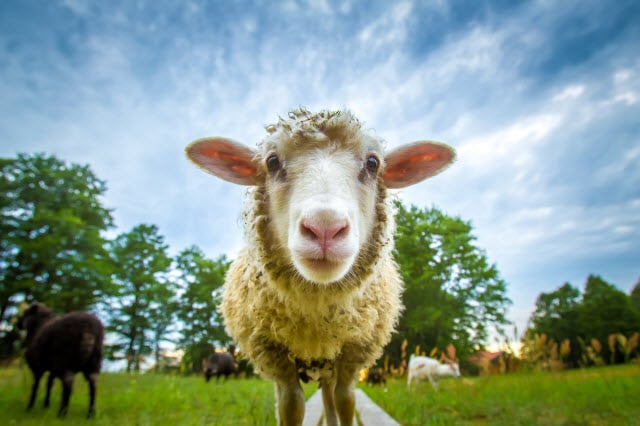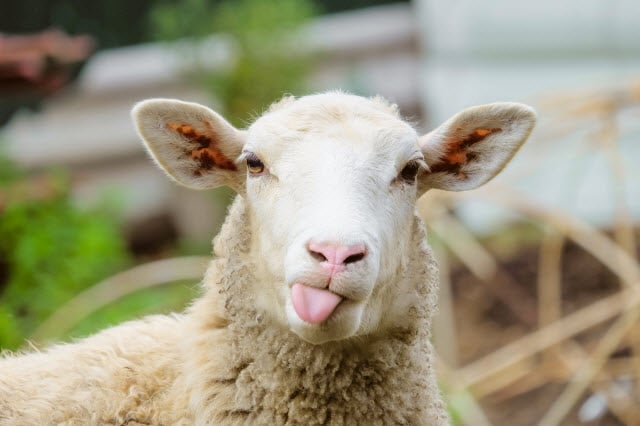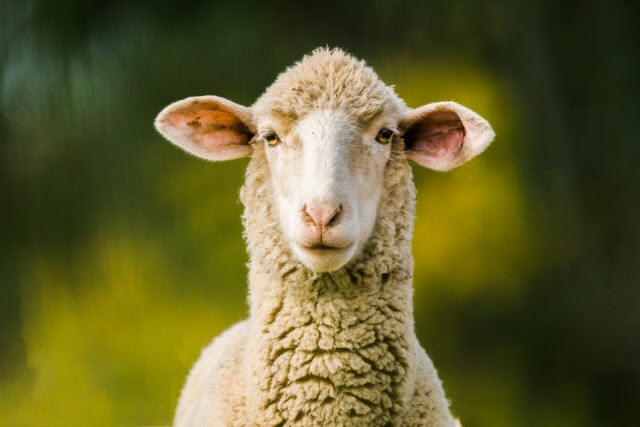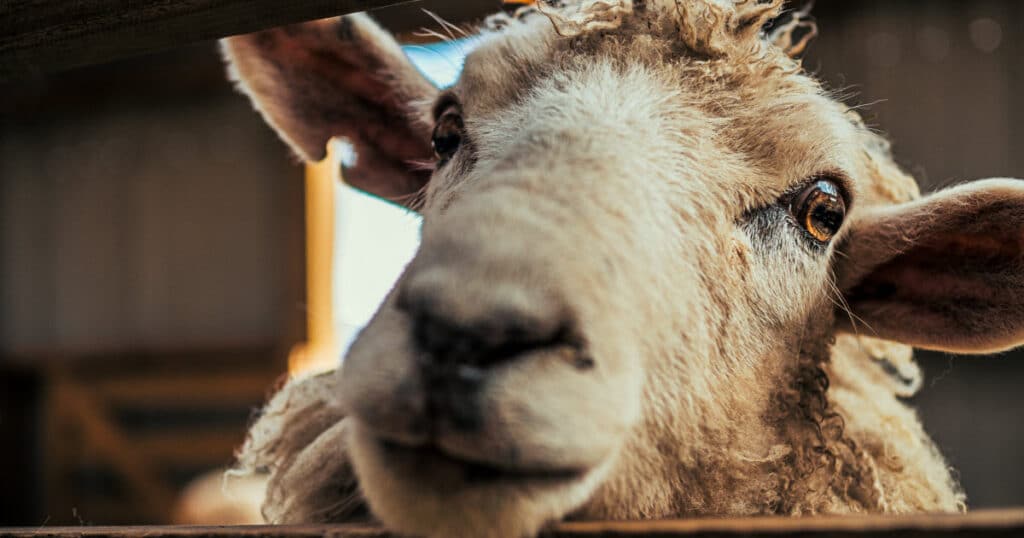Do you assume that sheep are dumb? If so, you might be surprised to learn this actually isn’t the case. While they’re not the smartest animal, they have some keen and useful instincts. Are sheep smart? Regardless of what we previously understood, yes – sheep are very smart. They interact with the world in a complete, unique way as herd animals.
In this article, we’ll cover whether sheep are smart and some of the characteristics of their brain. We’ll discuss several ways sheep are smarter than you probably think.
How Does the Sheep’s Brain Work?
Like other mammals, sheep’s brains are made up of gray and white matter. Sheep’s brains don’t have as many grooves and folds as a human brain.

Sheep can definitely think. Like a human brain, sheep have a cerebrum. The cerebrum is the part of the brain that allows for thinking and controls the senses and movement. That sheep have a cerebrum means shows they can think. They just cannot think in the same way that humans do.
Of course, the sheep’s brain has a brain stem to send messages from the brain to the rest of the body and vice versa. The cerebellum allows sheep to use its muscles and move around, allowing it to stay with its flock. This is essential for sheep health and survival.
One way in which sheep brains have an advantage over humans lies in its olfactory bulb. The sheep brain’s olfactory bulb is up to three times the size of the olfactory bulb in the human brain. This is essential for sheep, as they must be able to smell things at a far distance to stay safe. For example, the sheep needs to detect the scent of a predator before the predator gets too close.
In What Ways are Sheep Smart?
Sheep have recognition and memory skills that far exceed what we imagined in the past. This is one of the reasons why these animals are able to form friendships. Sheep even defend their friends when there is a fight in the flock. Sheep experience a wide range of emotions.

A study carried out in China in 2001 found out that sheep are able to remember and recognize as many as 50 faces for an extended period of time. How long? Two years! There are quite a few humans who wouldn’t be able to do this.
When sheep recognize other individuals that they know and recognize, they sometimes even vocalize.
Sheep Are Quick Learners
Sheep learn surprisingly quickly. They learn most effectively when they perceive things visually. They have been shown to be able to learn how to choose things by color. A study demonstrated that they could learn how to find the correct container by its shape and color. Sheep also know that just because something is covered doesn’t mean that it has actually disappeared.
Sheep are believed to have an IQ comparable to cows. They are even almost as smart as pigs. Sheep are able to produce different vocalizations when trying to express a variety of emotions. These animals can recognize how different facial expressions in their fellow sheep communicate different kinds of emotions.
Sheep are Aware of Themselves and Their Surroundings
These animals also know when they are sick and will gravitate to plants that they know will help them feel better. This is actually a kind of self-medication. Sometimes the plants they eat can even alleviate or cure whatever problem they are suffering from.
These animals are smart enough to understand risk in certain circumstances. Sheep healthy enough to withstand ticks venture into better pastures despite insect risks. Less healthy sheep will avoid this.
Sheep can learn new methods and ways to survive by watching other members of their flock. One of the main reasons why sheep stay in flocks is the safety they get in numbers. Each individual sheep will watch out for the others, keeping an eye out for predators and other sources of danger.
Sheep Have Individual Personalities
Each individual sheep also has its own personality, and any shepherd can tell you this.

Studies have been done in which sheep were tested for traits such as:
- Anxiousness
- Activity level
- Boldness
- Sociability
- Maternal style
A flock’s personalities affect the friendships and bonds that form. This impacts the ways the flock splits and moves around. In a flock, the most gregarious of the sheep tend to be the ones leading the way as the flock moves around.
The fact that sheep have individual personalities means that each individual can play different roles in the herd and create a complex social organization. As mentioned earlier, sheep experience a full range of emotions. The personality an individual animal has will affect the way it experiences those feelings.
Sheep Vision and Hearing
Sheep’s fantastic peripheral vision adds to their other abilities. These animals can even perceive what is behind them without having to turn their heads. It has also been discovered that sheep can see a number of different colors. In fact, they feel alarm when they see new colors.

These animals also have excellent hearing. This is essential for them to stay safe and hear any predators or any other dangers that might be nearby. The anatomy of sheep ears mean that they can be moved around to help facilitate better hearing.
Sheep are Pretty Smart!
As we’ve seen here, sheep are actually smart animals. They have their own personalities and experience the world in a much more complex way than previously believed. Sheep intelligence is one of the reasons why so many people enjoy keeping these animals as pets. If you ever consider having sheep as pets, however, make sure to do your research and ensure that you have the space and other necessities to ensure these animals’ health and security.

